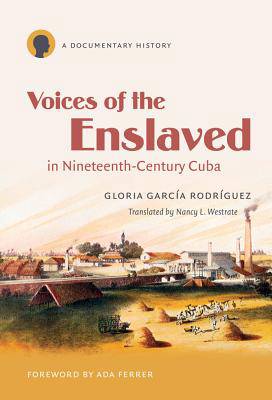
- Afhalen na 1 uur in een winkel met voorraad
- Gratis thuislevering in België vanaf € 30
- Ruim aanbod met 7 miljoen producten
- Afhalen na 1 uur in een winkel met voorraad
- Gratis thuislevering in België vanaf € 30
- Ruim aanbod met 7 miljoen producten
Zoeken
€ 53,95
+ 107 punten
Omschrijving
Putting the voices of the enslaved front and center, Gloria García Rodríguez's study presents a compelling overview of African slavery in Cuba and its relationship to the plantation system that was the economic center of the New World. A major essay by García, who has done decades of archival research on Cuban slavery, introduces the work, providing a history of the development, maintenance, and economy of the slave system in Cuba, which was abolished in 1886, later than in any country in the Americas except Brazil. The second part of the book features eighty previously unpublished primary documents selected by García that vividly illustrate the experiences of Cuba's African slaves. This translation offers English-language readers a substantial look into the very rich, and much underutilized, material on slavery in Cuban archives and is especially suitable for teaching about the African diaspora, comparative slavery, and Cuban studies. Highlighting both the repressiveness of slavery and the legal and social spaces opened to slaves to challenge that repression, this collection reveals the rarely documented voices of slaves, as well as the social and cultural milieu in which they lived.
Specificaties
Betrokkenen
- Auteur(s):
- Vertaler(s):
- Uitgeverij:
Inhoud
- Aantal bladzijden:
- 240
- Taal:
- Engels
- Reeks:
Eigenschappen
- Productcode (EAN):
- 9780807871942
- Verschijningsdatum:
- 10/10/2011
- Uitvoering:
- Paperback
- Formaat:
- Trade paperback (VS)
- Afmetingen:
- 157 mm x 235 mm
- Gewicht:
- 340 g

Alleen bij Standaard Boekhandel
+ 107 punten op je klantenkaart van Standaard Boekhandel
Beoordelingen
We publiceren alleen reviews die voldoen aan de voorwaarden voor reviews. Bekijk onze voorwaarden voor reviews.








